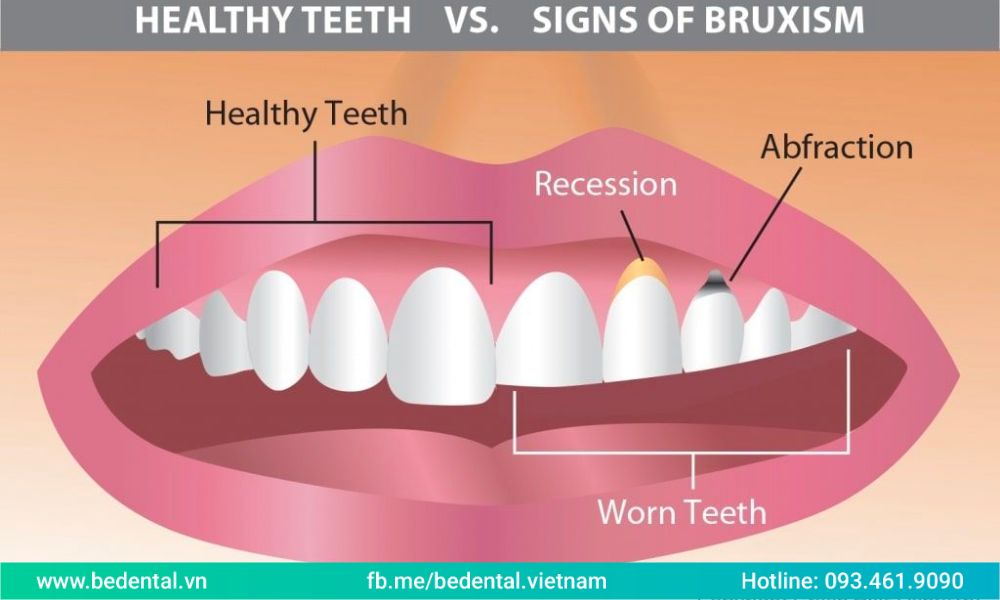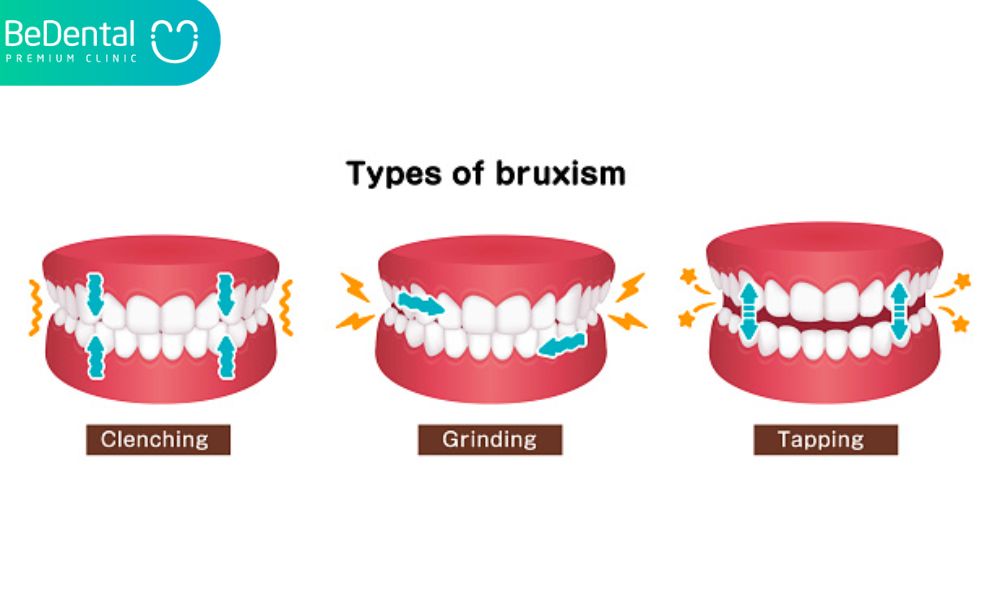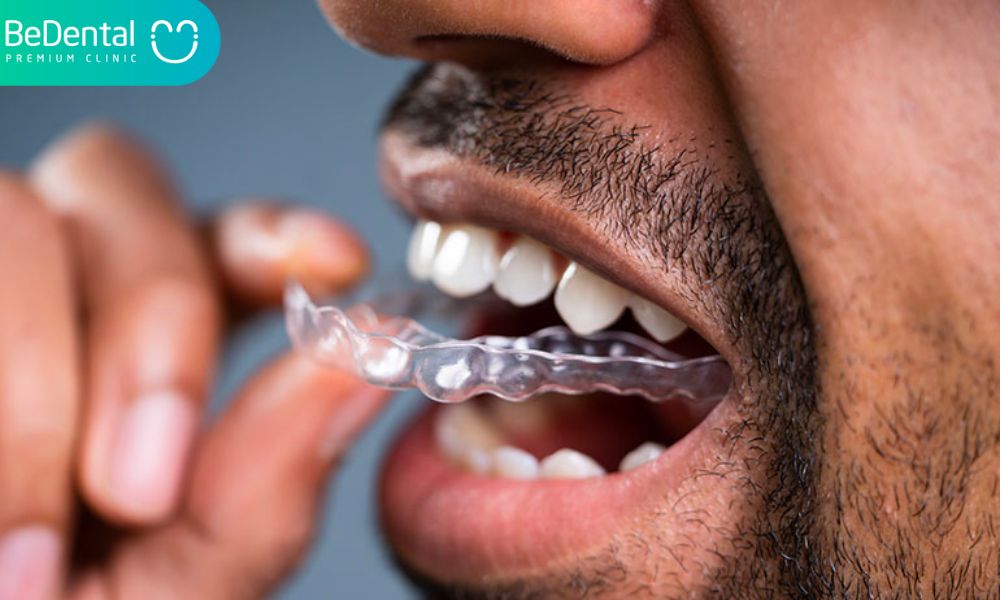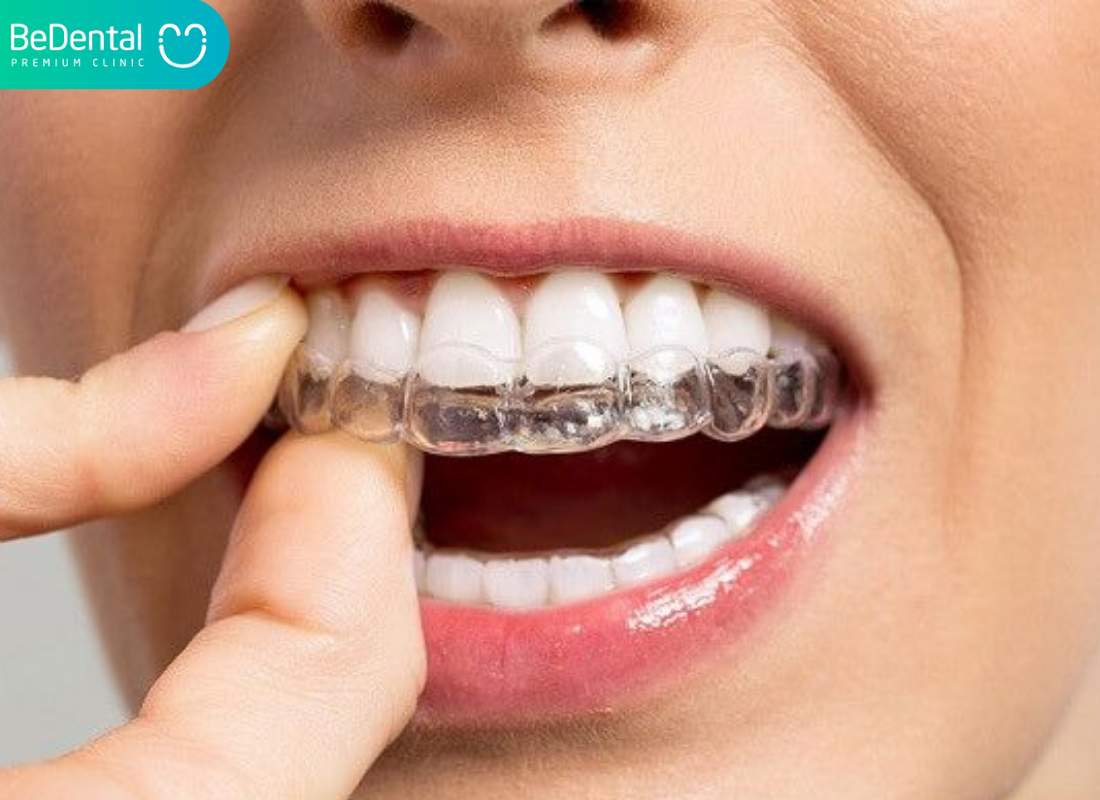Bruxism or teeth grinding is the medical name for the act of clenching, grinding, or gnashing one’s teeth when awake or asleep. While minor teeth grinding may not necessitate therapy, frequent or severe grinding should be addressed as soon as possible to avoid irreversible lip, jaw, or tooth damage.
What is teeth grinding?
What is teeth grinding? When a person does not eat, they grind or clench their teeth, which is known as bruxism. It normally happens during sleep, although it can also happen throughout the day. Generally, a person is unaware of what they are doing.
Teeth grinding is characterized by a chewing action in which the teeth rub against one another. Clenching occurs when a person clenches their muscles and holds their teeth together without moving them back and forth.

Signs of sleep bruxism
Sleep bruxism is a type of sleep disorder. The symptoms of sleep bruxism that people may notice when awake include:
- facial pain
- jaw pain and stiffness
- clicking, popping, or grinding noises when moving the jaw
- a dull headache
- sensitive, loose, or broken teeth
- worn teeth
- broken or loose fillings
Since the temporomandibular joint (TMJ) — the joint that permits the jaw to open and close — is so close to the ear, it can cause earaches. Referred pain, which happens when pain is perceived in a site other than its cause, can also occur.
Although persons who grind their teeth while sleeping may be unaware of their actions, those who sleep close may be able to hear the noise.
Awake bruxism
Awake bruxism differs from sleep bruxism in that it is not a sleep condition. Instead, it is a subconscious habit.
Awake bruxism does not necessarily result in teeth grinding. Instead, people are more prone to clench their teeth or strain the muscles surrounding their jaw. Conscious bruxism also causes jaw pain, dull headaches, and stiffness. When there is no grinding, the disease may not wear the teeth as much.
Awake bruxism, like sleep bruxism, happens involuntarily. Individuals may realize that they are more prone to it when concentrated or worried.
What causes teeth grinding?

Teeth grinding may not necessarily have a single, obvious cause, although it is linked to a variety of variables. These characteristics vary according to the kind of bruxism.
Primary bruxism
Primary bruxism occurs on its own and does not result from another condition. Some of the known factors that contribute to it include:
- Growing teeth: Teeth grinding is very common in young children, especially when their teeth are growing. However, because the teeth and jaw develop rapidly during childhood, bruxism usually resolves on its own without causing long-term damage.
- Misaligned bite: Teeth grinding can occur in certain persons due to a crooked bite or missing teeth. Irritation in the mouth may also contribute to grinding or clenching.
- Stress: Adults who grind their teeth when sleeping or waking are more likely to be stressed. A study found a connection between stress and bruxism, but additional research is needed to properly understand the relationship.
- Smoking, alcohol, and caffeine: According to a 2016 review of earlier data, these drugs are also connected to bruxism. Individuals who smoked or drank alcohol on a daily basis were roughly twice as likely as those who consumed more than 8 cups of coffee per day to grind their teeth.
Secondary bruxism
Secondary bruxism occurs as a result of another medical condition or circumstance, such as:
- Mental health conditions: Anxiety and despair have been connected to teeth grinding. This association might be explained in part by stress, which can aggravate these problems.
- Neurological conditions: Movement when sleeping can be caused by illnesses such as Huntington’s disease and Parkinson’s disease.
- Medications: Some drugs, particularly antidepressants and antipsychotics, can cause teeth grinding.
- Sleep apnea: Sleep apnea is a disorder in which breathing briefly stops while sleeping. It may be a risk factor for bruxism since it reduces sleep quality and causes frequent arousals. Sleep apnea may encourage teeth grinding or clenching by disrupting sleep.
What are the long-term effects of teeth grinding?
What are the long-term effects of teeth grinding? Long-term damage from teeth grinding may cause:
- tooth sensitivity, due to enamel wearing away
- gum inflammation or bleeding
- loose teeth
- damage to dental work, such as crowns and fillings
- flattened or short teeth
- tooth fractures
- TMJ syndrome, which causes pain, tension, and difficulty chewing
Diagnosis
A dentist can diagnose bruxism by performing a dental examination. They may notice:
- worn tooth enamel
- flattened, fractured, or chipped teeth
- loose or damaged crowns and fillings
- enlarged jaw muscles
Teeth wear can also be caused by excessive brushing, abrasives in toothpaste, acidic soft beverages, and hard meals, but a qualified specialist can distinguish between the distinct wear patterns of each cause.
Treatment: Mouthguard or mouth splint

Various treatments and strategies may help with bruxism. One of them is using mouthguard or mouth splint
To protect your teeth from injury, your dentist may recommend that you wear a mouth splint or mouth guard while sleeping. These devices can assist by spreading pressure uniformly across the jaw, forming a physical barrier between the teeth, and minimizing noise caused by teeth grinding.
Mouthguards for teeth grinding are usually composed of flexible rubber or plastic. A person’s teeth can be custom-made by a dentist, or an over-the-counter (OTC) version can be purchased. The nonprescription versions may be less comfortable.
The use of a mouth guard offers 5 key benefits to you:
- Protect Your Teeth from Damage: One big benefit of using a mouth guard. Your teeth grind and clench during sleep, resulting in chipped teeth, damaged fillings, and uneven enamel wear. Keep a confident grin while comfortably using a mouthguard.
- Limits Sleep Apnea and Snoring: Clenching and grinding your teeth weakens your muscles, producing breathing problems and snoring when your air intake diminishes. The mouthguard gently expands the little gap between your jaws, allowing more air in and guaranteeing a pleasant night’s sleep.
- Reduce Headaches and Pain: Temporomandibular Disorders (TMD) are characterized by teeth clenching and induce headaches, jaw discomfort, earaches, muscular fatigue, and neck pain. Although it may come as a surprise, feedback from mouthguard users suggests that using them regularly alleviates these issues instantly.
- Improved Sleep Patterns: Using a mouth guard can enhance your sleep greatly. Your jaws and face postures are designed to relax your muscles, resulting in reduced tension, anxiety, a better night’s sleep, and greater tooth protection.
- Less Tension on Your Joints and Muscles: Your dentist will mould and mold your mouthguard to meet your specific demands and relieve stress on your jaws and muscles. This form of discomfort will make it difficult to move your jaw freely when eating or talking. Mouth guards are lightweight and pleasant to wear, and after you’ve gotten used to them, they’ll become a natural aid for helping you sleep.
Generic mouthguards are not recommended for sports since they can be bulky and uncomfortable.
Prevention
Self-care may help people with primary bruxism lessen or prevent their symptoms. They could, for example, try:
- avoiding alcohol, tobacco, and caffeine
- refraining from chewing gum, as this may increase wear and tear or encourage more grinding
- applying gentle heat to the jaw to relieve pain and tension
- reducing avoidable stress and taking steps to manage unavoidable stress
External events and situations can induce stress, but so can people’s perceptions of such events. There are remedies in both cases.
Getting assistance, scheduling time for relaxation, and practicing mindfulness can all be useful. Breathing techniques, meditation, yoga, and other kinds of relaxation may also be beneficial.
More
Gum Disease and 3 Factors to Recognize Gum Disease
Zirconia Prosthetics Used to Treat Cavities and Tooth Sensitivity
Teeth cleaning and 3 main concerns
Zirconia Bridge and 5 Tips Should Know




Pingback: Jaw fatigue: 4 things you should know – Be Dental